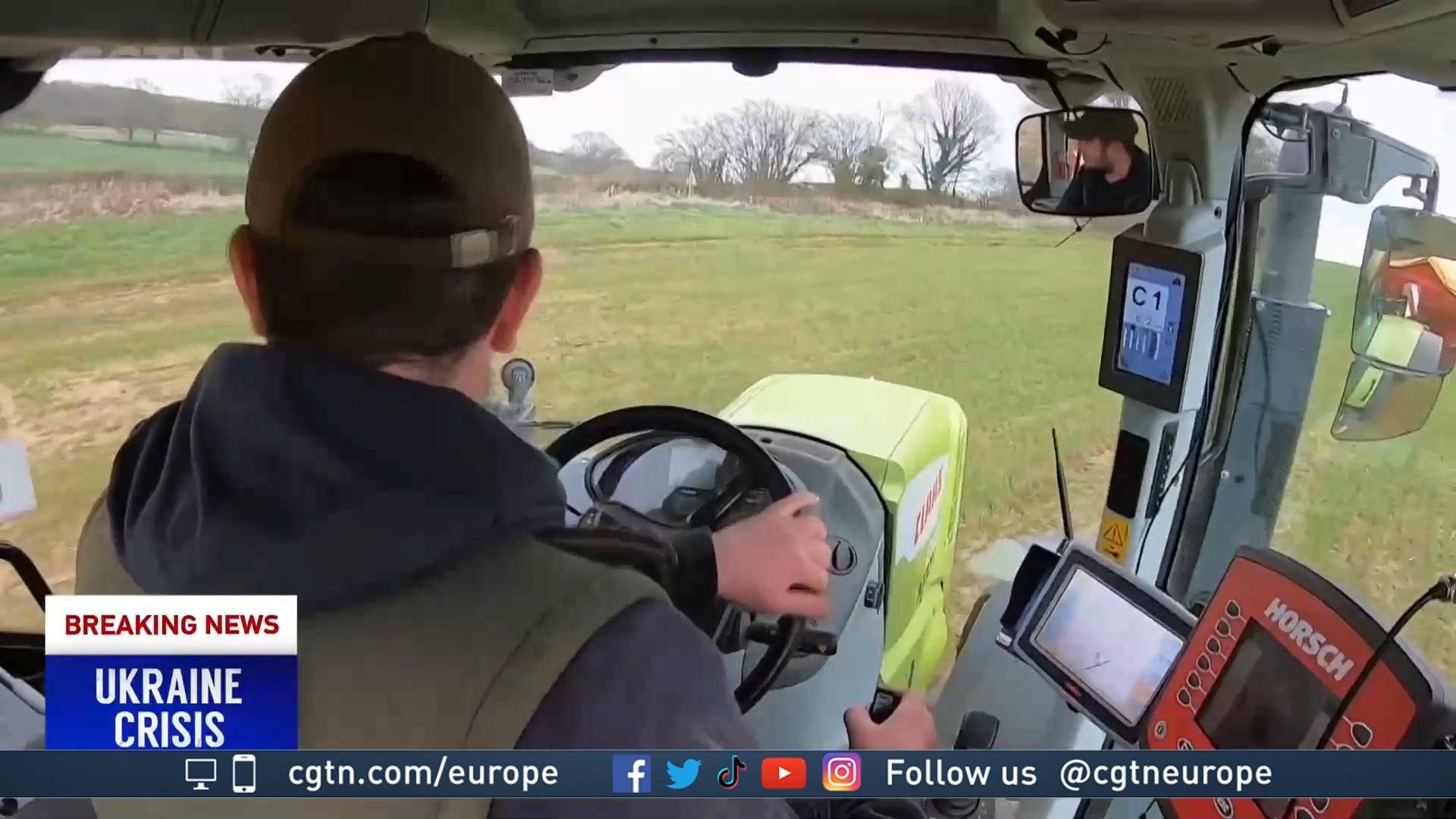03:05

As the weather warms in April, yellow rapeseed flowers are beginning to bloom, brightening the landscape beneath England's Surrey hills. This crop, used in essential cooking oils, is also grown widely in Ukraine. Since the conflict started there, it has suddenly increased in value.
"The price has gone up, because demand is high, but the production has dropped, because the Ukrainians are maybe not going to produce any, or only some rape this year," says Laurence Matthews, who runs a large mixed farm. "So, effectively we want to grow more rape going forward to replace that."
Farming has never been easy and since the start of the Ukraine conflict, it has become much more expensive. The cost of fertilizer, which is vital for farming, has tripled in the last year. Gas, a key ingredient, was already pushing the production costs before Russia's military actions in Ukraine, pushed costs even further.
READ MORE
Smart facemask technology
The landfill waste coming back to haunt us
Michael Wood: Telling China's story
"It's good that we're getting better prices, but actually growing the crop, the cost of the herbicide, the cost of the fertilizer has absolutely gone astronomical," says Matthews.
The government says it plans to support farmers during this testing time. "We announced a package of support for farmers to help with the availability and use of fertilizers to help and address uncertainty amongst growers," says DEFRA Farming Minister Victoria Prentis.
"We are confident in the supply of fertilizer, and I'll continue to meet with key industry bodies for further fertiliser round-table sessions in the coming months, to help identify and mitigate potential risks."
One key problem is that the UK normally imports around a third of its fertilizer from Russia. Now, not only is it more costly, but it is also in short supply, as farms try to stock up to beat soaring prices.
Analysts say the UK needs to reduce its dependency on Russian fertilizer and seek alternatives. "Just as with gas, one of the biggest risks for farmers has been that the UK is hooked on a supply of fertilizers that in part comes from unstable regimes like Russia," says Matt Williams, the climate and land program lead at the Energy and Climate Intelligence Unit.
"Part of the solution is already starting to come through from British industries, that are helping us replace gas through the roll-out of renewables, or might in the future replace fertilizer, through the production of low carbon fertilizers."
On a breezy day in Surrey, a tractor trundles up and down a slope, spreading fertilizer sparingly on a winter wheat crop just emerging from the soil, pausing to avoid any strong winds which might waste this precious commodity.
UK wheat sales are also closely tied to events in Ukraine. With major seaports such as Odesa blocked, exports are prevented from getting to the Middle East and Africa, pushing the price of wheat up too.
"If it means there's less grain on the world market, then we're going to have to step up and produce more, which means we're going to have to source our inputs from something else at the best price we can get them," says Matthews.
"But ultimately the price of inputs will drive the grain price. We're getting increased prices for our grains, but that's after of course – so the challenge is the cashflow in between.”
Rising fuel prices, also partly linked to the war in Ukraine, are impacting the cost of crop production too, although farmers were already seeking ways to reduce diesel usage for environmental reasons. But all these rising costs are adding to the bill farmers facing food producing food.
"The challenge is addressing those and planning the way forward, so that we can carry on producing profitably – as that's our job _ at a reasonable cost to consumers," says Matthews. But with the crisis in Ukraine far from over, rising food prices in the long-term now seem inevitable.

